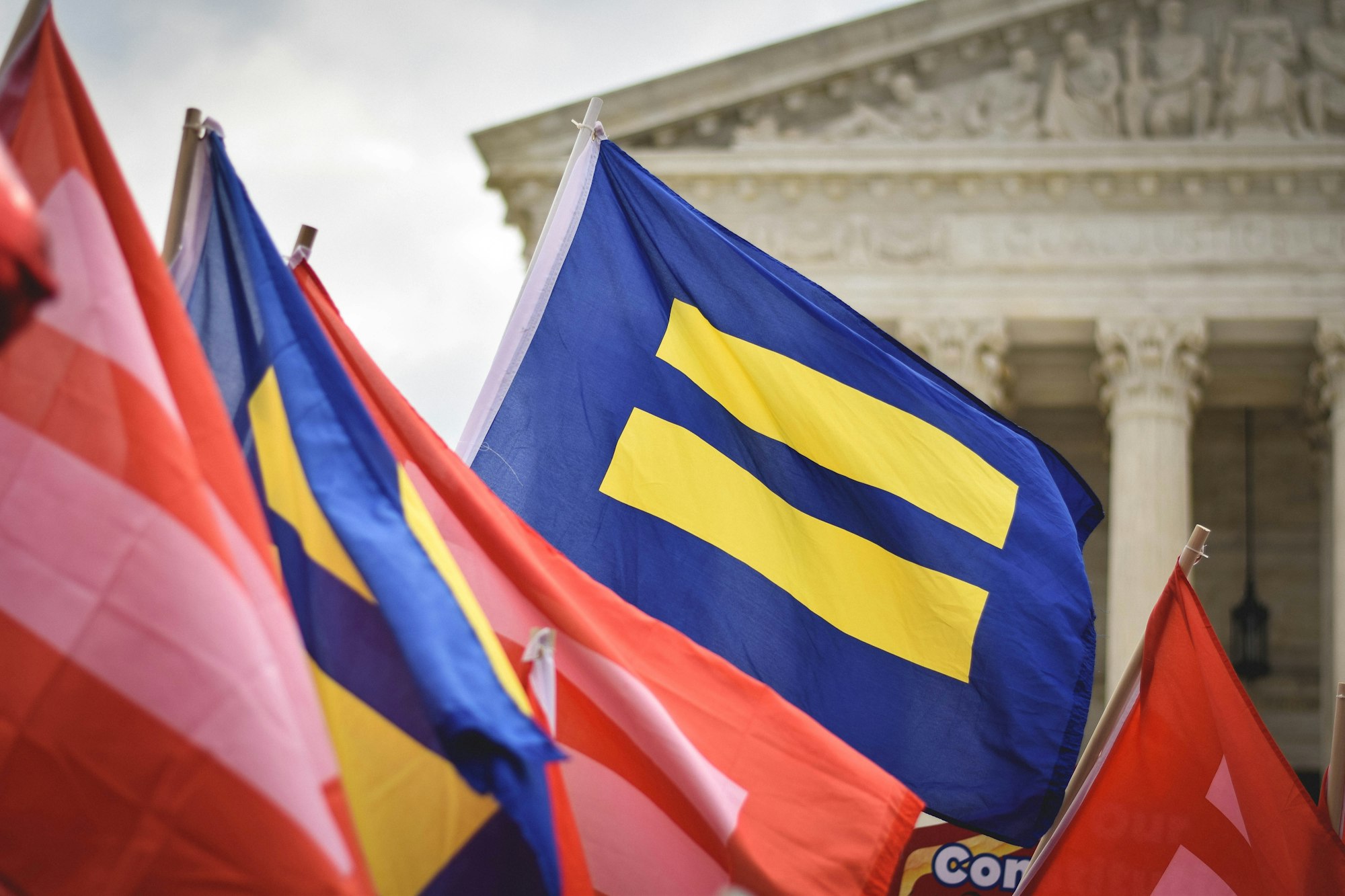Prayers are Answered, the Constitution Prevails, and West Virginia Grows Stronger

[This piece was originally published in the Wheeling Intelligencer in June, 2015.]
In St. Francis’ prayer we ask God to grant, “that we may not so much seek to be consoled as to console; to be understood as to understand; to be loved as to love.” St. Francis’ prayer would serve us at any time, but perhaps never more than now. It calls us, always just in time, to kindness, charity, and, most of all, wisdom.
Our Supreme Court has handed down a decision on a matter that has divided our country bitterly for more than a decade. The sacred right to marry, and the institution of marriage itself, was at stake. Also at stake was our Constitutional order, and its promise of “the equal protection of the laws” to any person within the jurisdiction of our courts.
Before the decision came down, both sides sat on the steps of the U.S. Supreme Court, and they prayed. When the decision was finally reached, I saw one group with folks from both sides, kneeling in a circle, and praying together.
Ten years ago, leaders of both political parties routinely denied that marriage should be allowed for same-sex couples. Only one state, Massachusetts, allowed it at that time. Twenty years ago, only 27% of Americans though same-sex marriages should be valid. Today, more than sixty percent do. To put that in perspective, it means that in twenty years, over a hundred million Americans have changed their mind about this.
But of course, some people still say “never,” some say “too soon, too fast,” and some say “what have we waited for?” All three groups live in the same cities and towns, the same states, and the same country. The Court has decided the issue, but we are all still here, together.
For that, and nothing else, our Constitution exists. Our Constitution is a charter of our plan to live together. It describes the rights we will have, the institutions that will guard them, and the mechanisms that will preserve our Union. The United States Constitution is our nation’s “fiery Gospel, writ in burnished rows of steel.”
That world’s-oldest constitution belongs to us, and though it is pushing two hundred and fifty years of age, it carries us. Much though we revere it, we do not forget that for a hundred years, it tolerated slavery. We do not forget that for seventy-five years more, it tolerated segregation. A “perfect union” has always been on our horizon, but never quite in our hands.
West Virginia holds a unique place among the fifty states. Forty-nine others are bordered by, and created by, seas, rivers, lakes, or lines of latitude and longitude. Not West Virginia. Our borders are the borders of an idea — the 1861 idea that our Union should endure — and where West Virginians believed in the Union, we were severed from rebel Virginia, to create our great State.
Our soldiers, sailors, airmen, and marines live and die to defend our country and our Constitution. But West Virginians alone can say that our State was born to defend the Constitution. When the confederacy said that there could be no Union in the face of the division over slavery, the forefathers of West Virginia said: “well, we’ll just see about that.”
Knowing we survived that, more than a hundred years before I was born myself, gives me hope that we’ll survive this. The expansion of freedom to those who did not have it shocked us into war in 1861, and then into widespread violence in 1964. Fifty years later, if freedom expands again, some folks will be shocked, some will be angry, and some will rejoice, but there seems to be a real good chance that no one at all is going be hurt or killed this time around. A more perfect union.
Our Supreme Court can speak to our Constitution, but it cannot resolve all our consciences in one fell swoop. We will all move on together and live together, but if some come along at different speeds or with different ideas, that’s going to be fine. What’s matters is our shared common ground: respect: for our Constitution, our institutions, and most importantly, one another.
We say that Mountaineers are always free — and the freedom to live, and let live, should be cherished above all. It’s just basic common sense that as long as there has been a West Virginia, there have been gay West Virginians. They’ve policed cities, fought fires, taught school, mined coal, drove truck, waited tables; they’ve doctored and nursed the sick. They’ve paid their taxes, and raised their families. They’ve served our nation in all its wars.
Now that our Court has spoken and the Constitution has declared that they may do all these things in the full light of day and with full equality under the law, we are stronger, not weaker. The quintessential West Virginian idea — Protect the Union – has prevailed. And we are no less holy, now that we are all more free.
St. Francis’ prayer is a constitution of its own. It is a road map for how we can live together — by seeking not so much to for our own consolation, as to console others; by hoping not so much to make others understand us, as for us to understand others. We are called by his prayer, not to insist on respect and love for ourselves, but to freely give it to others. And when we do, our prayers are answered.

